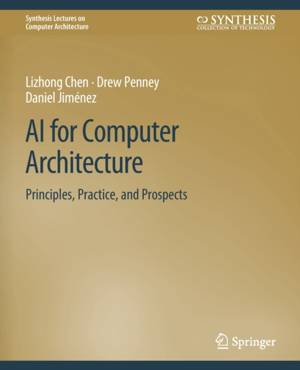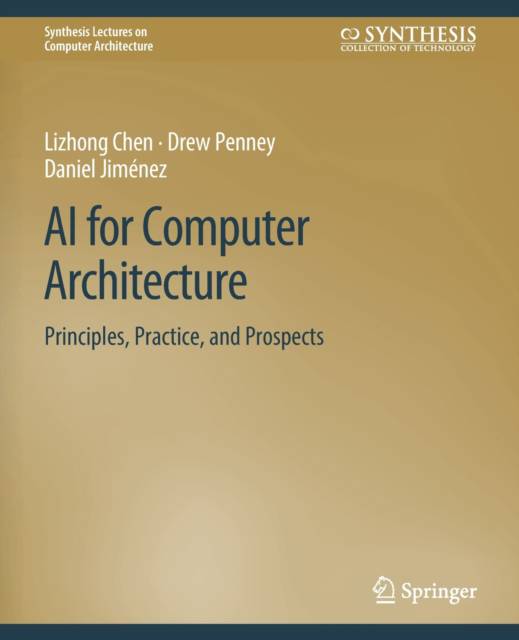
- Afhalen na 1 uur in een winkel met voorraad
- Gratis thuislevering in België vanaf € 30
- Ruim aanbod met 7 miljoen producten
- Afhalen na 1 uur in een winkel met voorraad
- Gratis thuislevering in België vanaf € 30
- Ruim aanbod met 7 miljoen producten
Zoeken
AI for Computer Architecture
Principles, Practice, and Prospects
Lizhong Chen, Drew Penney, Daniel Jiménez
€ 63,45
+ 126 punten
Uitvoering
Omschrijving
Artificial intelligence has already enabled pivotal advances in diverse fields, yet its impact on computer architecture has only just begun. In particular, recent work has explored broader application to the design, optimization, and simulation of computer architecture. Notably, machine-learning-based strategies often surpass prior state-of-the-art analytical, heuristic, and human-expert approaches. This book reviews the application of machine learning in system-wide simulation and run-time optimization, and in many individual components such as caches/memories, branch predictors, networks-on-chip, and GPUs. The book further analyzes current practice to highlight useful design strategies and identify areas for future work, based on optimized implementation strategies, opportune extensions to existing work, and ambitious long term possibilities. Taken together, these strategies and techniques present a promising future for increasingly automated computer architecture designs.
Specificaties
Betrokkenen
- Auteur(s):
- Uitgeverij:
Inhoud
- Aantal bladzijden:
- 124
- Taal:
- Engels
- Reeks:
Eigenschappen
- Productcode (EAN):
- 9783031006425
- Verschijningsdatum:
- 6/11/2020
- Uitvoering:
- Paperback
- Formaat:
- Trade paperback (VS)
- Afmetingen:
- 190 mm x 235 mm
- Gewicht:
- 258 g

Alleen bij Standaard Boekhandel
+ 126 punten op je klantenkaart van Standaard Boekhandel
Beoordelingen
We publiceren alleen reviews die voldoen aan de voorwaarden voor reviews. Bekijk onze voorwaarden voor reviews.











